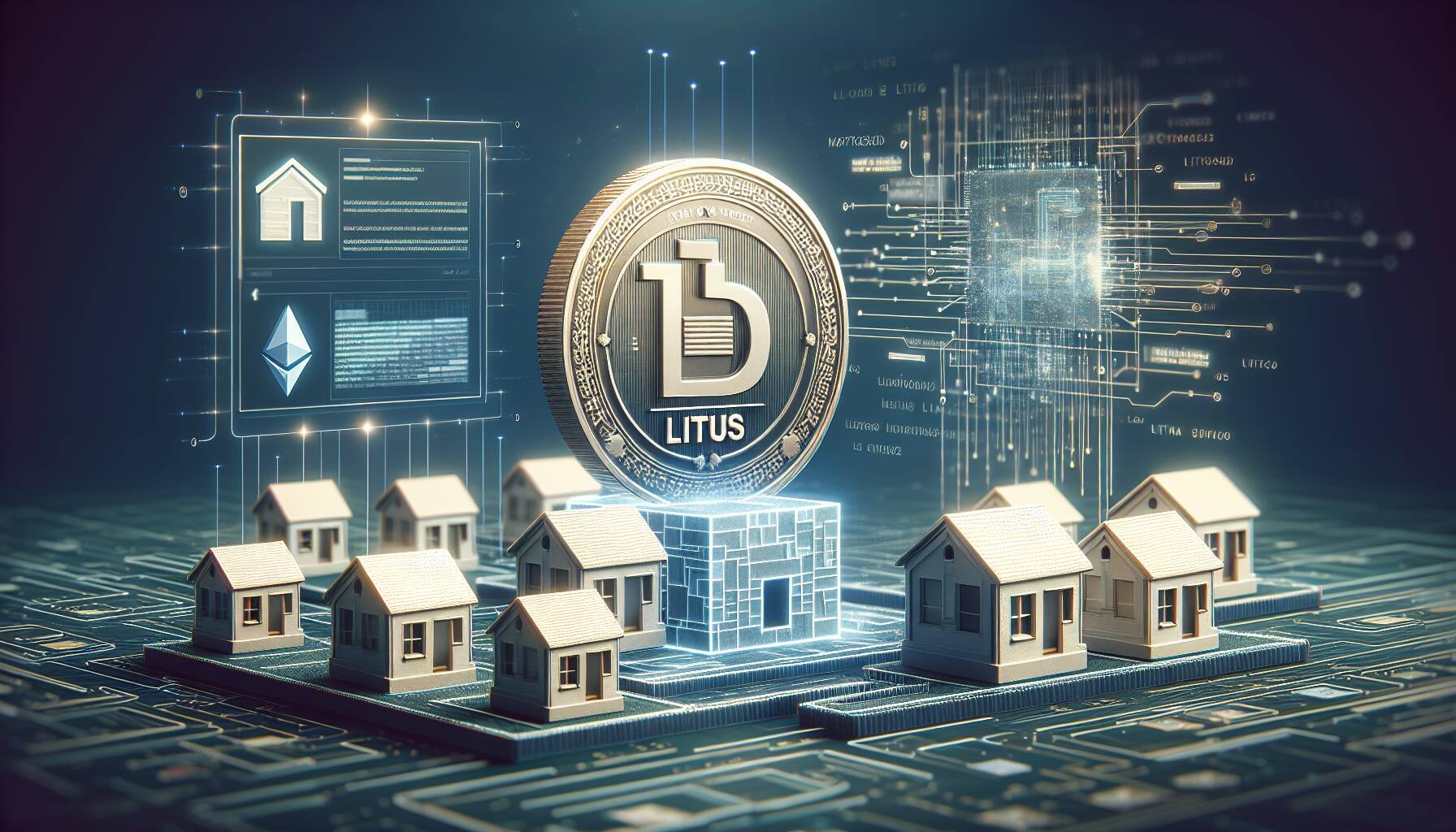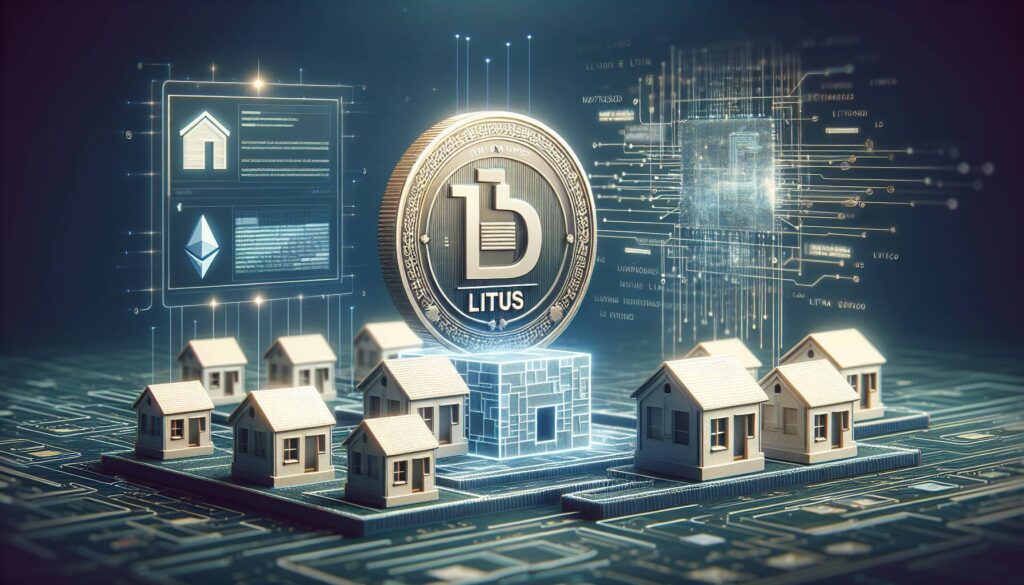Michigan-based mortgage lender LitFinancial made headlines this week by launching its own U.S. dollar stablecoin, named litUSD, on the Ethereum blockchain. This initiative marks a significant step in the digital dollar movement, which is gaining traction far beyond traditional cryptocurrency users. The firm aims to use litUSD to lower funding costs and enhance its treasury management, while also considering on-chain settlement for mortgage payments. This innovative approach could potentially transform how loan performance is recorded and could reshape liquidity within the secondary mortgage market.
“Stablecoins are rapidly becoming an essential tool for modern treasury operations,” LitFinancial CEO Tim Barry stated. “With litUSD, we’re building resilience and adaptability into our business model while pioneering how mortgage finance can evolve with blockchain technology.”
Stablecoins, which are digital currencies pegged to traditional money like the U.S. dollar, are swiftly becoming a popular payment alternative. They promise faster and more cost-effective transactions using blockchain technology. Recent research from Keyrock predicts that stablecoin payment volume may soar to $1 trillion by 2030, underscoring the growing acceptance of this asset class. The trend received a boost with regulatory advancements in the U.S., notably following the GENIUS Act being signed into law, which has paved the way for more mainstream adoption of stablecoins.
The newly introduced litUSD operates as an ERC-20 token, fully backed 1:1 by cash and cash equivalents kept in reserve. LitFinancial chose Ethereum for its “stability, decentralized nature and alignment with domestic policies,” as noted by Barry. The issuance and redemption of litUSD are managed by Brale, a FinCEN-registered money services business, while Stably, an advisory firm, assists with token economics and integration into decentralized finance (DeFi). Consumers can mint and redeem litUSD through bank transfers or Circle’s USDC stablecoin via Brale’s verified business accounts.
As LitFinancial continues to position itself in the evolving mortgage landscape, it is worth noting that the firm, founded in 2024, employs over 100 individuals and aims to achieve an annual mortgage origination run-rate exceeding $1 billion by 2026. The company’s leadership includes seasoned professionals from Rocket Mortgage and Coinbase, highlighting its deep industry expertise and ambition to innovate within the financial space.

LitFinancial Launches litUSD Stablecoin
Key points related to the debut of litUSD and its implications:
- Launch of litUSD: Michigan-based LitFinancial has introduced a U.S. dollar stablecoin, litUSD, on the Ethereum blockchain.
- Cost Reductions: The company aims to cut funding costs and enhance treasury management operations through the use of litUSD.
- On-chain Mortgage Payments: LitFinancial is exploring on-chain settlement for mortgage payments, potentially allowing real-time tracking of loan performance.
- Impact on Secondary Mortgage Market: Public tracking of mortgage loan performance could reshape liquidity dynamics in the secondary mortgage market.
- Growth of Stablecoins: Stablecoins are gaining popularity, projected to reach a payment volume of $1 trillion by 2030, enhancing payment efficiency.
- Regulatory Support: U.S. regulations and the signing of the GENIUS Act have contributed to broader adoption of stablecoins in the financial ecosystem.
- Backing and Security: litUSD is backed 1:1 with cash and cash equivalents, ensuring stability and trust in the token.
- Partnerships for Success: Collaboration with Brale for issuance and redemption, and Stably for token economics enhances the operational framework.
- Future Projections: LitFinancial aims for an annual mortgage origination run-rate exceeding $1 billion by 2026, highlighting growth potential.
“Stablecoins are rapidly becoming an essential tool for modern treasury operations.” – Tim Barry, CEO of LitFinancial
LitFinancial’s litUSD: A Game Changer in Mortgage Lending
The recent launch of litUSD by Michigan-based mortgage lender LitFinancial positions the firm at the forefront of the stablecoin industry, particularly in the mortgage sector. By deploying its stablecoin on the Ethereum blockchain, LitFinancial aims to streamline funding costs and innovate treasury management. This strategic move resonates well with the growing trend of integrating blockchain technology into conventional finance, particularly as regulatory frameworks have started to catch up to innovations within the stablecoin realm.
Competitive Advantages: LitUSD offers a distinct edge over traditional mortgage payment methods by facilitating potentially faster and cheaper transactions. By embracing the efficiencies of blockchain, LitFinancial can enhance liquidity in the secondary mortgage market, a significant shift that could attract forward-thinking investors considering the expansion of mortgage-backed assets into the digital asset domain. Additionally, the backing of litUSD 1:1 with cash equivalents ensures stability, reinforcing trust among potential users and investors.
Competitive Disadvantages: Despite its advantages, the competitive landscape is heating up as more institutions recognize the potential of stablecoins. Rivals like Tether and Circle already have established ecosystems, which may pose hurdles for LitFinancial in achieving rapid market penetration. Moreover, the volatility associated with regulatory environments could create uncertainties around the long-term viability of stablecoins in general, including litUSD. As a newcomer, LitFinancial must continuously innovate to maintain its competitive advantage while navigating potential regulatory challenges.
Target Audience and Potential Impact: The launch of litUSD could significantly benefit tech-savvy borrowers who value speed and efficiency in mortgage transactions. Additionally, institutional investors looking for innovative financial products may find litUSD appealing, especially amid a growing acceptance of stablecoins in recognizing digital assets as credible tools for treasury operations. However, less technologically inclined consumers may encounter obstacles in adapting to this new currency, potentially creating a divide between early adopters and traditional mortgage consumers.













